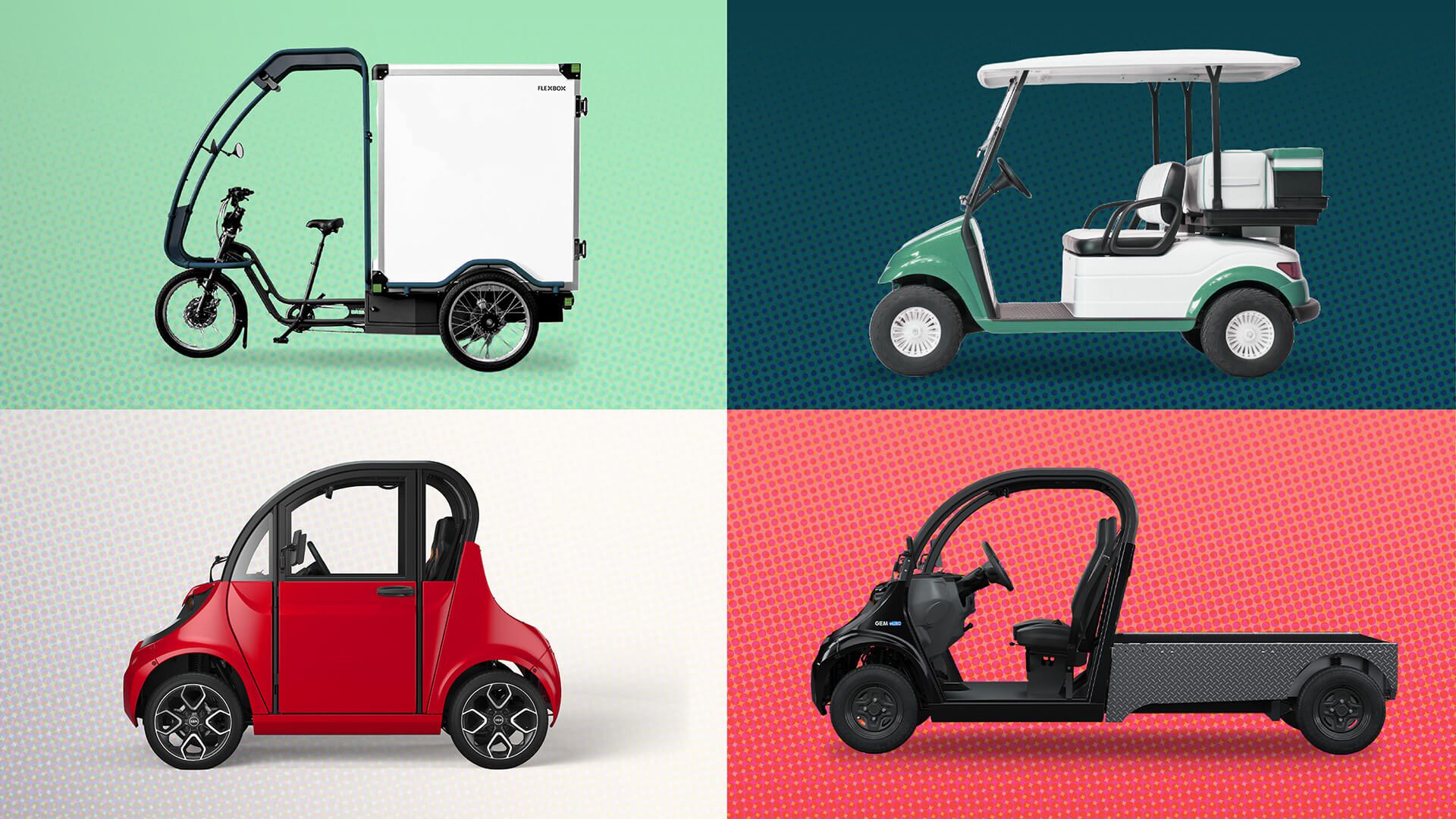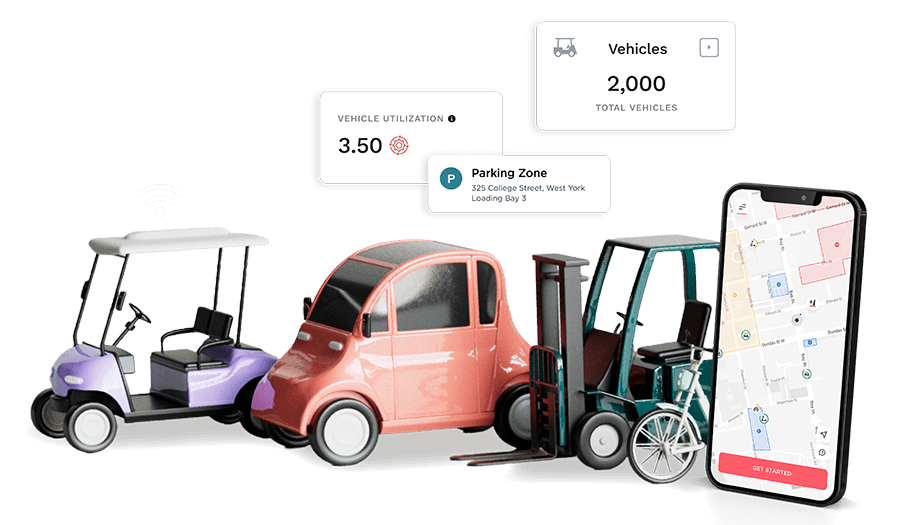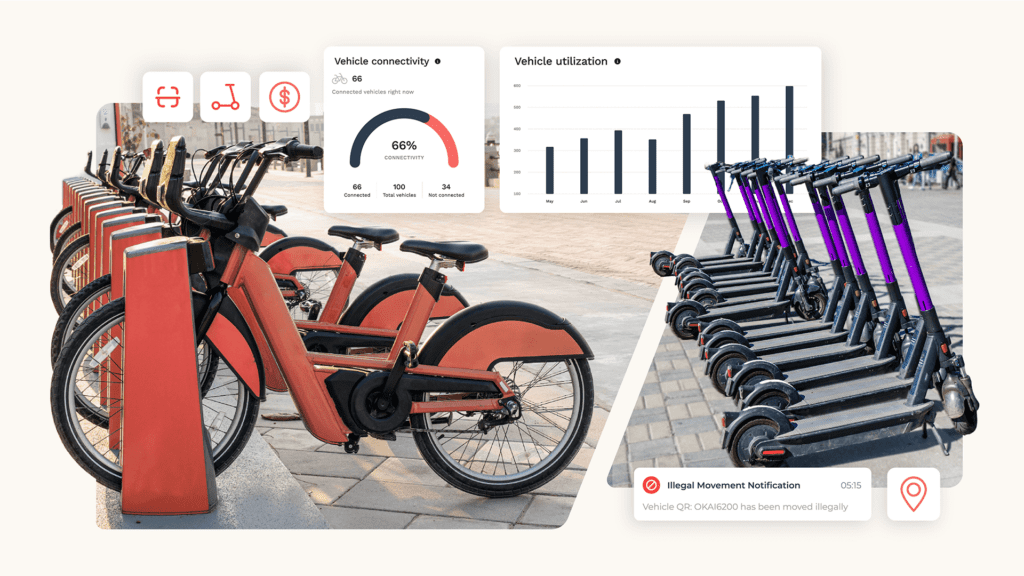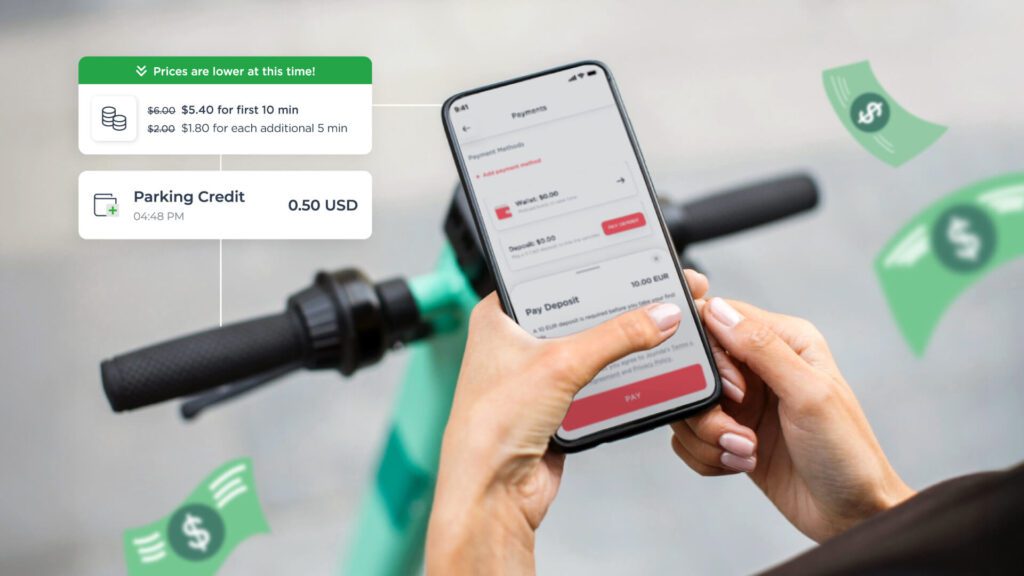From electric street cleaners in Seattle to cargo delivery bikes in London, cities around the world are experiencing a wave of urban innovation powered by micro- and mini-mobility. These small but mighty electric vehicles are reshaping the transportation landscape for goods, services and people–and businesses are tapping into this shift.
In this post, we’ll explore four innovative electric vehicle business ideas that show the potential of lightweight electric vehicles to cut operational costs while aligning with sustainability goals–and hopefully spark your own entrepreneurial inspiration along the way.
1. Cargo bikes for trades and service businesses
Across Europe, countries like Norway, Germany and the Netherlands are leading the charge in electrification, driven by strong government incentives and infrastructure investments. Ultra Low Emission Zones (ULEZ) are quickly becoming a European norm, with over 320 active by 2022 and more than 500 expected by 2025. As a result, cargo bikes are seeing widespread adoption for both B2C and B2B services.
Take, for instance, Laundryheap, the world’s largest on-demand laundry service, which teamed up with sustainable logistics provider Delivery Mates to electrify their fleet. By replacing delivery vans with cargo bikes, Laundryheap reduces its CO2 emissions by 34 tonnes annually—a significant step toward sustainability.
Another example is London’s oldest chimney sweep service, H. Firkins & Sons, which turned to electric cargo bikes to navigate the city’s congestion and take advantage of ULEZ benefits. With a four-wheel cargo bike capable of carrying up to 150kg and a 40-mile range, Firkins has significantly streamlined their operations, saving time and earning praise from customers.
Similarly, Cyclo-Plombier, an innovative plumbing service in Paris, relies solely on e-bikes for rapid response emergency call-outs. Speed and efficiency are key to their model, with daily rides covering 40-60 km. The switch to e-bikes saves them 800 km a month in petrol and parking fees.
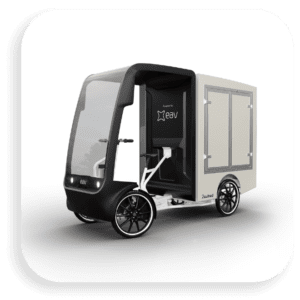
Both Laundryheap and H. Firkins & Sons use the EAV 2Cubed Cargo bike. Want to learn more about EAV? Watch the replay of our Next-Gen Mobility Models webinar featuring guests from Today and EAV.
2. Golf carts and LSVs for transportation at universities and corporate campuses
While cargo bikes make sense for trades in urban centres, a lesser known use-case for electric utility vehicles is at universities and corporate campuses. Electric low-speed vehicles (LSVs), like the GEM E4 and GEM Utility, are quickly becoming the go-to choice for campus transportation at higher education and corporate facilities.
For example, Stanford University uses a fleet of electric Club Car Transporter vehicles to efficiently move staff and materials across its expansive campus. Other lightweight vehicles in the fleet are equipped with tools for property maintenance, helping to manage everything from landscaping tasks to parcel deliveries.
At the King Abdullah University of Science and Technology (KAUST) in Saudi Arabia, Averda, a waste management company, implemented an electric fleet featuring Alke ATX trucks to manage waste collection across the 36 km² campus and surrounding residential areas. With over 2,000 homes involved, Averda’s Alke ATX electric trucks follow a smart collection route to optimize the process, utilizing vehicles with steel mesh sides and specialized waste collection bodies.
3. Electric utility vehicles for parcels, municipal services and waste collection
It’s not just the private sector going electric. Cities and municipalities are turning to electric vehicles for public works, grounds maintenance and waste collection. Employees of the city of Sacramento, California, for instance, use GEM electric vehicles for parking enforcement and park maintenance.
In London, First Mile employs custom-built electric cargo bikes to manage garbage collection and recycling for over 30,000 businesses. Each bike, capable of carrying 200kg of cargo, operates as efficiently as a traditional 3.5-tonne truck but with the added benefit of zero emissions. In fact, these vehicles save over 20kg of CO2 emissions daily, making them an eco-friendly solution for modern waste management.
Also in the UK, Royal Mail is trialling new electric vehicles for last-mile deliveries in residential areas in an effort to further reduce its carbon emissions. The company previously trialed e-cargo trikes, and is testing two new “quadricycle” class vehicles–the Paxster Cargo and Ligier Pulse 4.
4. Electric vehicle rentals for tourism and hospitality
Turning to the tourism and hospitality sector, hotels and popular travel spots are embracing electric fleets not just for convenience, but as a greener option for property management. Resorts such as the Omni Grove Park Inn in Asheville, North Carolina, use their fleet of electric golf carts not just on the golf course green, but also to transport luggage, shuttle guests, and carry equipment and maintenance crews around the property.
On Harbour Island in the Bahamas, golf carts are the primary mode of transport for locals and visitors alike, with thousands of registered carts available for rental. This eco-friendly option allows guests to explore the island in a quiet, comfortable way, reducing the environmental impact of leisure trips on gas-powered vehicles.
Ambergris Caye, another popular tourist destination, has also embraced electric vehicle rentals, with resorts offering golf carts by the hour or day, making it easy for visitors to get around the island. Even Disney World has joined the trend, with electric golf carts available for guests at Fort Wilderness Resort & Campground, adding a sustainable touch to the park experience.
Start your own electric vehicle business
These are just a few examples of how micro- and mini-mobility solutions offer real opportunities for businesses. The versatility of lightweight electric vehicles means there are plenty of chances for partnerships, new markets and fresh revenue streams across different industries.
Ready to turn your business idea into reality? Talk to our team of mobility experts to see how fleet management software can keep your vehicles and profits in check.

